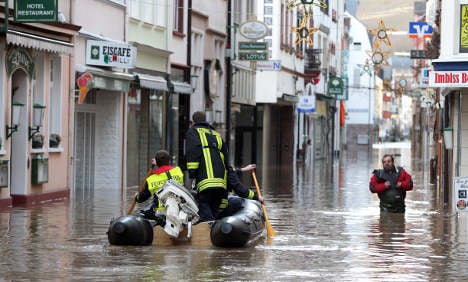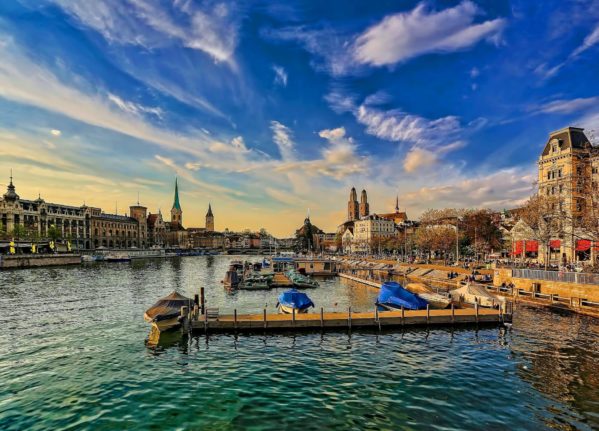Communities in Rhineland-Palatinate faced the worst flooding, as water levels were expected to climb higher throughout the day. The point where the Rhine and Mosel meet at Koblenz, the Deutsches Eck, had already been submerged.
A spokesman for the catastrophe services in Koblenz said the water would likely hit the eight-metre mark. “It continues to climb slowly, otherwise the situation hasn’t changed much overnight,” he said.
The city’s police warned there would be considerable obstacles to commuter traffic on Monday morning because several roads had been completely shut due to flooding.

The authorities said some 30 communities between Trier and Koblenz now stood underwater, though the flooding appeared to be easing further up the Mosel. But in Koblenz the crest was expected on Monday afternoon.
As the floodwaters head downriver along the Rhine, the peak is likely to hit Cologne only on Tuesday.
Other regions remained tense, but the end to rains over the weekend had helped ease flooding somewhat.
While water levels along the Oder and Spree rivers in eastern Germany had stabilized, they had risen along the Elbe and its tributaries in the Prignitz. In southern Brandenburg, the town of Herzberg near the Elbe and Elster rivers had prepared for the worst with 10,000 sandbags. The authorities were also concerned chunks of ice could block the flow of water from the Oder into the Baltic Sea.
But residents in the central state of Hesse could breathe easier on Monday, as floodwaters began to recede.
“We’re not worried anymore. The water levels have dropped and there’s no more precipitation,” said a police spokesman in Fulda.
The authorities in Kassel in the northern part of the state also seemed to think the worst was over.
“The situation appears to be easing, the levels are falling,” a police spokesman said.
DPA/DAPD/mry





 Please whitelist us to continue reading.
Please whitelist us to continue reading.
Member comments